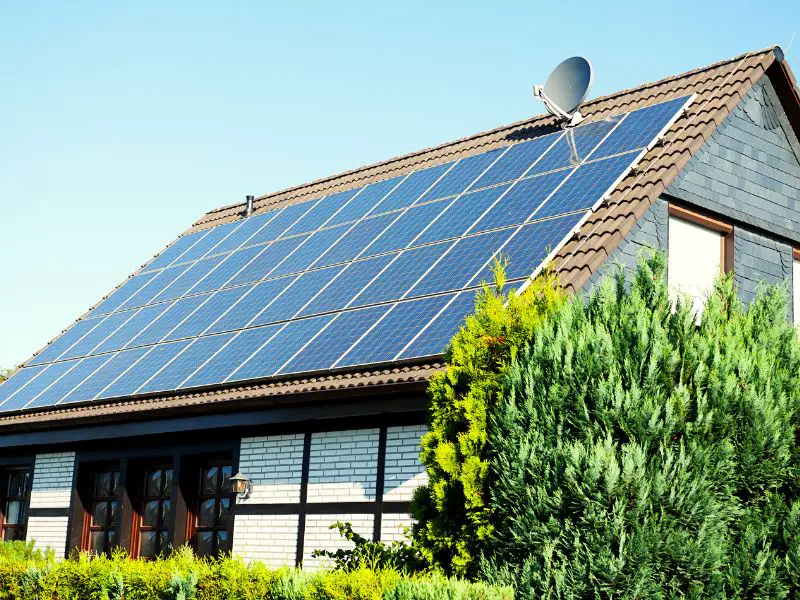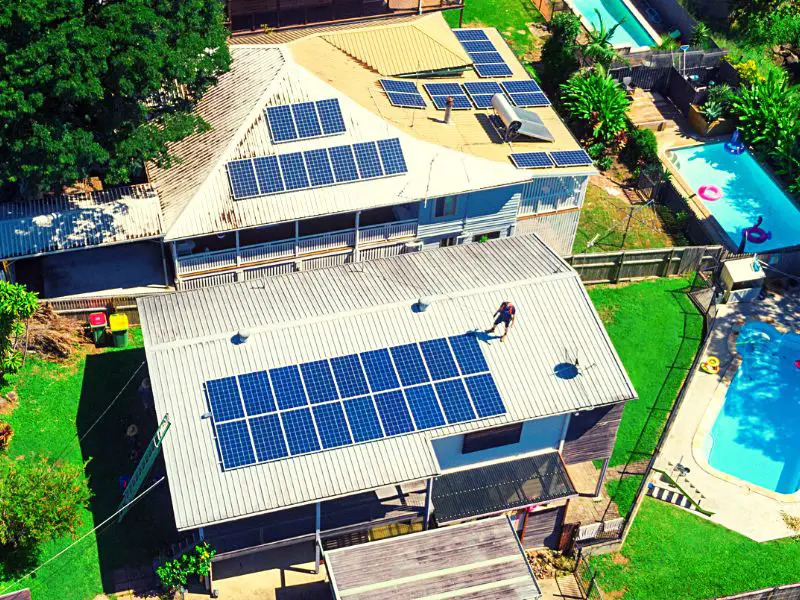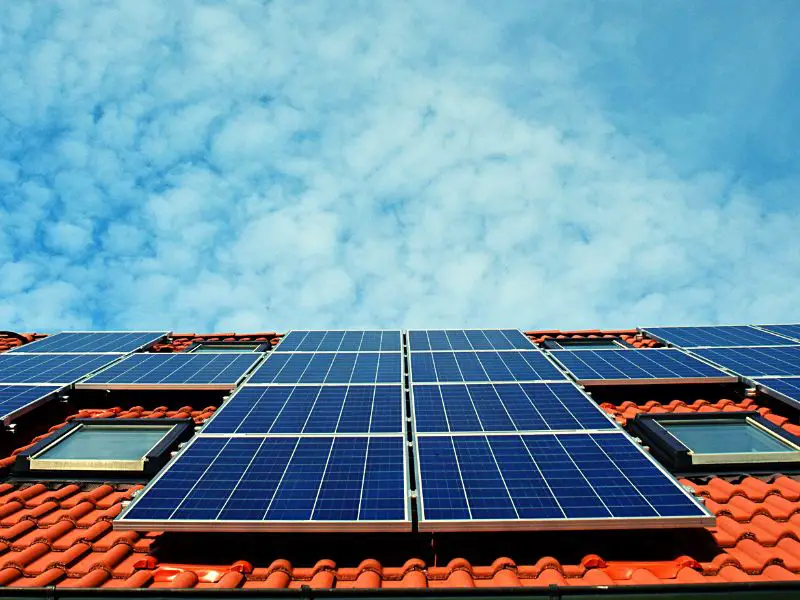Solar panels use one of nature’s most potent and cost-free resources: solar energy. Solar panels, commonly known as photovoltaic systems (PV systems), employ semiconductor technology to convert solar energy into household-usable electricity.

But are they the perfect option for your home?
The rising demand for solar panels has resulted in a 60 percent decrease in price over the previous decade. As innovations are happening every day to make solar energy components more cost-effective, solar panel costs have declined considerably over the past several years. Besides lowering your energy costs, solar panels may help you make money from excess electricity produced.
What are the three key advantages of solar panels?
365 days of electricity – Solar panels create clean, emission-free electricity to power your house 365 days a year, and their 25-year lifespan makes them an excellent long-term investment.
Increase your property’s value and earn money with solar grants – Another advantage of solar panels is the ability to sell excess power generated by your system. Not only will you gain money from SEG, but you will also raise the value of your home.
Reduce your carbon footprint – A home powered by solar energy minimizes the carbon footprint and aids in the eradication of hazardous domestic emissions.

We’ve gathered this most helpful information to help you choose the best solar panels for your home. Discover how to reduce your carbon footprint, whether or not it is safe to walk on solar panels and the best sustainable technologies.
How to Choose the Best Solar Panels
When selecting the ideal solar panel for your house, consider multiple essential variables. Here are some of them.
1. Efficiency
You want to search for solar panels with the highest possible efficiency for the price you can afford. The more efficient solar panels are, the more energy they can produce. If you choose panels with lower efficiency ratings, you will need to purchase more panels to power your house. Despite the high initial cost, an investment in high-performance, energy-efficient solar panels will be a wise decision in the long term, resulting in a more effective solar power system.
2. Durability
Solar panels are exposed to different elements, so it’s essential to consider their durability. Panels with a good temperature coefficient may resist severe heat while generating near-optimal levels. Several panels have been built to withstand the weight of several inches of snowfall. You should choose solar panels that perform optimally in your region’s temperature and weather circumstances.
3. Price
The cost of residential solar panels will vary depending on the kind and efficiency of the panels. On average, residential solar systems cost between $16,000 and $40,000. With such a significant investment, you want to be sure you get the highest return possible.

7 Best Solar Panels for Your Home
Solar power systems vary widely in quality and range from very complicated and expensive to practical and inexpensive. The critical thing is to find an installer who knows what they are doing and has been working with solar for a long time so they can recommend models to fit your needs.
Choosing a solar panel for your home could be complex and a lengthy process due to the wide variety of products available. Here are some of the best solar panels we’ve liked based on evaluation, and they should help you find the right one that meets your needs.
1. Silfab
Silfab is at the top of our list because of its high-efficiency passivated emitter and rear contact (PERC) panels, which will last for 30 years. Silfab offers high-performance panels at a price point slightly below premium brands, and it is backed by one of the industry’s most extended warranties.
Silfab guarantees optimum performance that can last for 30 years. The company ensures an 83 percent output from its solar panels. If the panels dip below this threshold, Silfab will look after the maintenance and repair. It also includes a 12-year craftsmanship warranty on its panels, which lines up with the industry norm of 10 to 12 years. This guarantee can be continued for 25 years if the panels are purchased from a Silfab-certified installer.
2. Sunpower
SunPower makes some of the most efficient and best solar panels on the market right now. Even though its panels are the most expensive of the ones we looked at, a one-time investment in the best solar panels will save you money in the long run.
SunPower is a good option for homeowners who want to buy the best solar panels. Solar panels with a higher rating tend to cost more than the average solar panel. SunPower solar panels start at about $3.30 per watt, which is a lot more than the average price of $3 per watt in the industry.
The company gives a 25-year warranty on its products and performance, making it one of the few to provide such lengthy warranties. SunPower also promises that its panels will produce at least 92% output of the initial wattage rating by the 25th year. If your system’s performance falls below this threshold, the firm will upgrade your system.
3. Panasonic
EverVolt, Panasonic’s newest panel line, utilizes half-cut heterojunction (HJT) solar cell technology to produce the most energy-efficient panels on the market. Its solar panels are designed to endure high temperatures, making them a good option for homes in hot areas.
Panasonic’s most recent line, the EverVolt series, employs HJT technology to generate panels with greater efficiency and less energy loss. The most powerful panels in the series have efficiencies ranging from 21.6% and 22.2% and range in power output from 400 W to 410 W.
EverVolt panels are protected by the AllGuard and TripleGuard warranties, both of which are good for 25 years and cover product, key parts, human labor, and performance. In addition, Panasonic promises that its panels will maintain a minimum output performance of 92% for 25 years.
4. LG
LG solar panels are perfect for customers with complex roof structures or limited roof space. Because its panels are more powerful but smaller, you may buy fewer solar panels while generating enough electricity for your home.
LG provides three residential solar system choices. The smaller 375 W LG NeON R has a 20.7 percent efficiency. After 25 years, the manufacturer assures the output of the 365 W NeON 2 Black Solar Panel at 90.6 percent. Lastly, the 400 W LG NeON 2 BiFacial Solar Panel is equipped with technology that lets sunlight absorb both the top and bottom of the panel. This technique enables the panels to continue accumulating energy even on cloudy days.
LG provides a 25-year product warranty for its panels. Nevertheless, the energy production promise differs per model. For instance, LG NeON R panels offer an output guarantee of 98.5% after one year and a minimum of 92.5% after 25 years. On the other hand, the LG NeON 2 series will generate 96.4% of its output by the end of 25 years.
5. Q Cells
Q Cells panels provide an outstanding blend of robust performance, high efficiency, and low cost. In addition, the company offers warranties that surpass industry standards for product and performance protection.
The Q.Peak Duo brings about 20.6% to 21.4% efficiency with panels ranging from 350 W to 415 W.
Q Cells offers a 25-year product and performance warranty on its solar panels. The business guarantees that its panels will create a minimum output of 98 percent in the initial year. After then, production declines by 0.5 percent annually. After ten years, the output will stabilize at 93 percent, then decline to at least 86 percent during the next quarter-century.
6. Canadian Solar
Canadian Solar manufactures high-quality solar panels that may be a good alternative for households trying to cut expenditures. Although the efficiency of these solar panels is below the mid to premium solutions, they are an excellent choice for anybody seeking a low-cost alternative for their house.
The HiDM models feature a shingled, mono PERC solar architecture that packs added solar cells into a smaller area, making them excellent for locations with restricted space. Despite these panels being less expensive than the HiKu series, the performance of this variant and its longevity are both subpar. The Hiero is the highest high-efficiency product that Canadian Solar offers. These panels have 405 W to 430 W and an efficiency of 22 percent.
Product warranties differ depending on the model. The hike series has a 12-year product guarantee, while the HiDM versions have a 15-year warranty. Hiero models offer a product warranty of 25 years and a linear power output guarantee of 30 years.
7. Trina Solar
Trina Solar panels are the most affordable of all the panels tested. Its panels outperform the industry average but are still below the top-tier solar panel options.
Trina Solar’s newest panel variants, which are only available in the United States, are supported by a 25-year manufacturer’s warranty and a 25-year performance guarantee. Because these extended warranties do not necessitate the use of a Trina installation, homeowners will have these safeguards in place from the moment of purchase.

Author’s Note
I hope that this article has given you some great information about what to look for when choosing solar panels. As you can see, the solar panels out on the market vary in price and performance, so it should be easy to find what your home needs. I hope you have gotten some great ideas from this article, and I wish you all the best of luck!


Very nice post. I just stumbled upon your blog and wanted to say that I’ve really enjoyed browsing your blog posts. In any case I’ll be subscribing to your feed and I hope you write again soon!